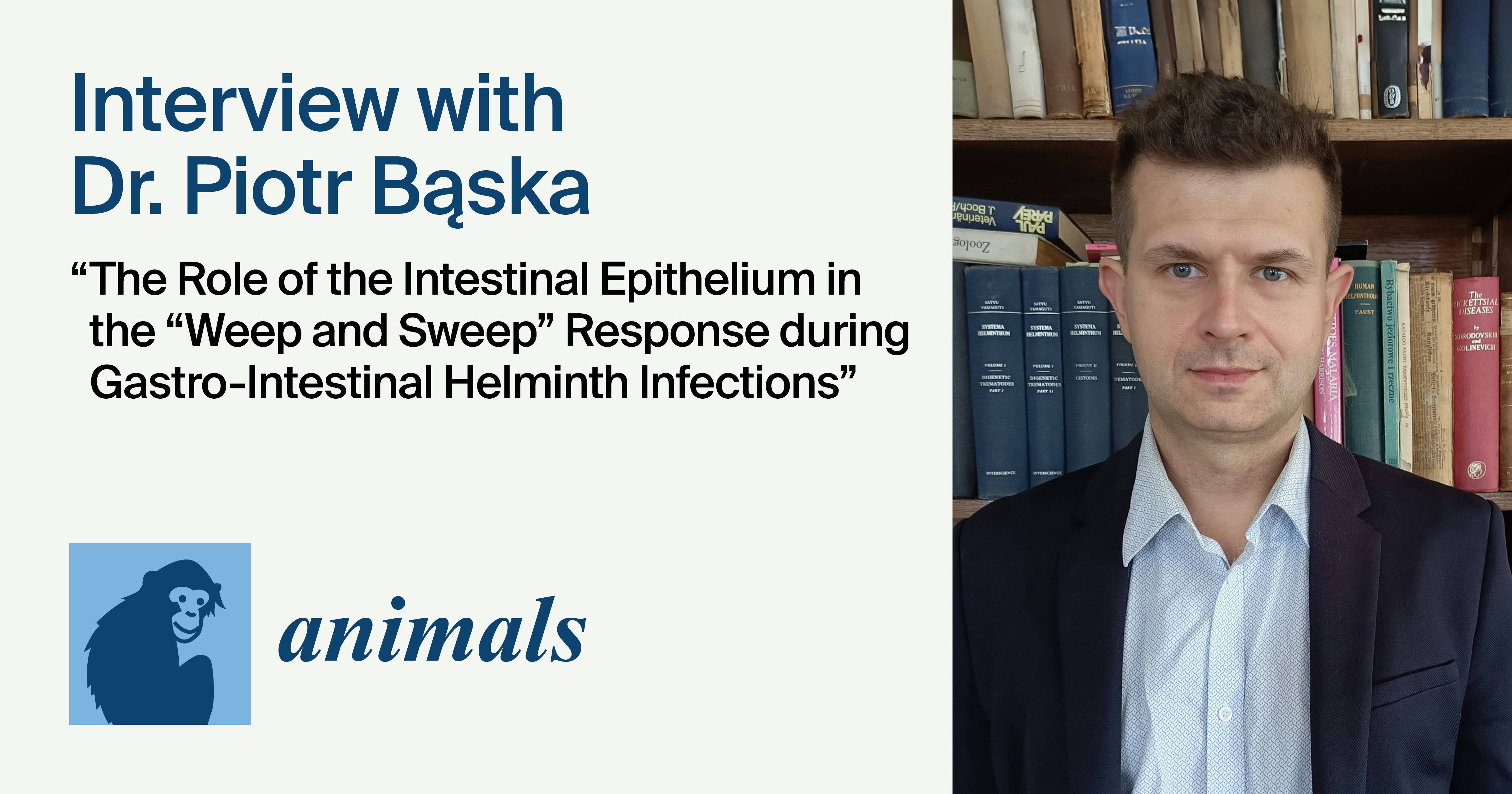
Animals | Interview with the Author—Dr. Piotr Bąska
10 January 2025
We recently had the opportunity to interview Dr. Piotr Bąska about his paper “The Role of the Intestinal Epithelium in the “Weep and Sweep” Response during Gastro-Intestinal Helminth Infections”, which was published in Animals (ISSN: 2076-2615) in 2022 and has since been cited over 20 times.
The following is a brief interview with Dr. Piotr Bąska:
- Dr. Bąska, can you tell us a little bit about yourself and your current research?
I work as a professor at two institutions—at the Warsaw University of Life Sciences (SGGW) and at the Military Institute of Hygiene and Epidemiology. My research expertise is focused on the interactions between parasites and the response of the immune system, and how these interactions interplay with the nervous system. Specifically, I study how the immune and nervous systems react to parasitic invasions, especially to the dog roundworm (Toxocara canis).
The second area of my research is tick epidemiology and diseases transported by migratory birds. I investigate diseases transmitted by ticks, in particular Hyalomma spp., a species transported by birds migrating from regions such as Africa and South Europe that is a vector for the Congo hemorrhagic fever virus. - What do you think we can learn from your article?
My publication focuses on the role of the epithelium in the response to gastrointestinal helminth infections. The immune response involves more than just the immune system itself—it is a collaboration of the entire organism. It can be compared to a military force: the immune system is the army, but the whole organism, like a society, is involved. The epithelium serves as the first point of contact with pathogens and sends alarm signals. The nervous system also plays a role here, working alongside the immune system and helping to decide what type of response to initiate. The response against parasites differs from those targeting viruses or bacteria. Parasites are too large for the typical immune attack, requiring the organism to employ a different approach to combat them. My article is a compilation of knowledge on how the organism fights gastrointestinal helminth infections. - What inspired you to conduct this research?
Epithelial cells are the first line of contact with pathogens, and the way they signal this contact determines the immune response in the organism. Parasitic invasions are detrimental, but they also show some positive outcomes in our lives. People exposed to parasites are less likely to suffer from allergies or autoimmune diseases since the immune system is modulated during infections and stays less active, preventing self-aggression. Human trials have shown that individuals suffering from Crohn’s disease experience an improvement in their condition when they are exposed to the swine whipworm. The epithelium may also participate in these interactions. Studying various reactions during infections is fascinating. Collecting as much information as possible and preparing this review on how epithelial cells initiate interactions with the immune system turned out to be a good base for my future research. - What do you think made the academic community respond so well to your research?
I believe the readers and community can find a large amount of information in one place. It is a good source of knowledge compiled in an accessible form. - What do you see as future directions for your research?
My research team and I are working on the direct impact of certain pathogens, not only on the immune system but also on the nervous system, particularly aspects that have not been previously studied. This includes investigating the responses of nervous and immune cells during exposure to parasites. We aim to understand how these cells communicate with each other and how one system influences the other. - Why did you choose Animals as the best platform for your work?
I had a good experience and impression with my first publication in the Animals journal. I enjoyed the fast process of publishing in Animals, which is important for authors. I also had a good past experience as a reviewer and Guest Editor. I would also consider assisting on a Special Issue project again in the future, should an opportunity arise. - What advice would you give to young scholars seeking to get into academia or publish their work?
To read articles that they are interested in, as much as possible, and to explore fascinating aspects of research that have not been focused on before. This can be a great way to start your research.
